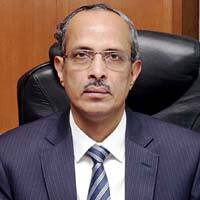Sessions With S.C.L. Das
Tuesday, 10 March
-
07:30am - 08:40am (CST) / -
NOCs: Shifting portfolios, shifting priorities
Upstream Oil & GasOver the past decades, Asia upstream has been a key production anchor for leading IOCs and independents. However, the growing maturity of the region, coupled with portfolio rebalancing and North American shale, has led to several companies reducing their regional footprint. This portfolio change comes at a critical time for the region, where its increasing energy demands make exploration and development investment essential. What are the near-term priorities of regional NOCs and companies? How does the changing competitive landscape impact investment outlooks? Will technology help to develop challenging resources? What levers can host governments use to attract new investor capital? Can private equity find a model for success, as seen in the North Sea and North America?
- Speakers:
- Nick Sharma
- Alok Sinha
- S.C.L. Das

